If you missed Sunday’s message you can catch up by listening here or over at crosspointe.org/series/the-book-of-james.
James 3:3-12 (NRSV)
If we put bits into the mouths of horses to make them obey us, we guide their whole bodies. Or look at ships: though they are so large that it takes strong winds to drive them, yet they are guided by a very small rudder wherever the will of the pilot directs. So also the tongue is a small member, yet it boasts of great exploits.
How great a forest is set ablaze by a small fire! And the tongue is a fire. The tongue is placed among our members as a world of iniquity; it stains the whole body, sets on fire the cycle of nature, and is itself set on fire by hell. For every species of beast and bird, of reptile and sea creature, can be tamed and has been tamed by the human species, but no one can tame the tongue—a restless evil, full of deadly poison. With it we bless the Lord and Father, and with it we curse those who are made in the likeness of God. From the same mouth come blessing and cursing. My brothers and sisters, this ought not to be so. Does a spring pour forth from the same opening both fresh and brackish water? Can a fig tree, my brothers and sisters, yield olives, or a grapevine figs? No more can salt water yield fresh.
It’s likely that either one of your biggest regrets or hurts have to do with words. Want to read some nonsense that we all learned as kids?
“Sticks and stones will break my bones, but words will never hurt me.”
I don’t know many people who would choose “I don’t love you anymore,” or “you’ll never amount to anything,” or “why can’t you be more like…” over a brief pelting with a stick from the yard. Words cut, kill, and ruin far more than anything that can be done with hands. They are at the center of most of our brokenness and pain we each carry. So why does our tongue—our speech—have so much power? Jesus spoke to this:
“For the mouth speaks what the heart is full of.” —Jesus, Matthew 12:34
If we focus on editing only what comes out, then will be people who have a church-building vocabulary, a Friday night vocabulary, an argument vocabulary, a talking to grandma vocabulary, a family sense of humor, an email sense of humor, etc. We will have the ability to filter out words to sound more holy, while the heart remains unchanged. We speak the things lodged inside of us. Good or bad, it’s not the mouth’s fault when words are spoken. The mouth is simply spilling what the heart is full of. It’s in there, and it’s going to come out somewhere.
As it turns out it’s the mouth, not the eyes, who are the true windows of the soul.
Rather than trying to merely filter our words so as to give the impression that there is nothing darker misaligned within our hearts, let’s deal honestly with the heart. Let’s ask tough questions, observing ourselves throughout the day and asking in a given moment: why do I have the impulse to speak right now? Why does it feel like if I don’t say a thing, then I will have missed out on something? Why the impulse to say something negative, offensive, defensive, humiliating, inflammatory, vengeful, vulgar, etc.? Does what I am preparing to say fan the flames of hell, or douse them? Does my body language communicate ugliness, anger or disgust even though my words might not?
Then wait, without speaking, until God grants us the awareness that James called a tamed tongue. Transformation of the awakened heart is how transformation of our speech occurs.
“Search me, oh God, and know my heart! Try me and know my thoughts, and see if there be any grievous way in me, and lead me in the way everlasting.” –David, Psalm 139:23-24
“Talking comes by nature, silence by wisdom.“ –Yiddish proverb
“Speak only when what you were going to say is more beautiful than silence.“ –Sufi Proverb
